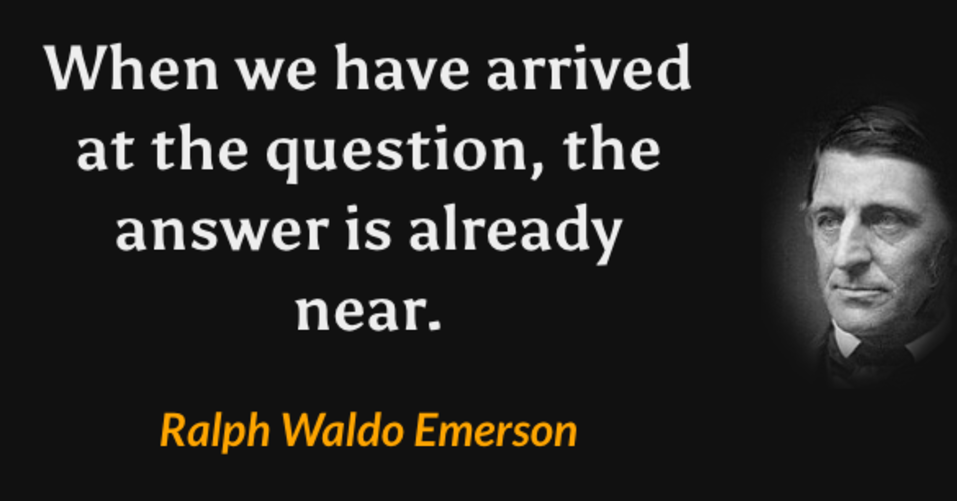Stop Looking For Answers, Questions Are Where It’s At
We were crammed into the conference room for one of our annual huddles. Roger to my left, scribbling something illegible in his notebook. Josh sat across the table, arms folded like a sentry guarding the gates of skepticism. The agenda was straightforward—assess, plan, argue (or “strategically debate,” if you prefer HR-approved phrasing). The year, 2015(ish).
Somewhere between evaluating donor attrition rates and musing about where to eat for lunch I blurted out:
“We need to hire a behavioral scientist.”
Roger froze mid-scribble. Josh’s face tightened, his brow arching so high it practically exited the room. The silence was deafening, punctuated only by the faint hum of the overhead light.
To their credit, they didn’t immediately dismiss me, though the skepticism was palpable. Finally, Josh broke the silence: “Why?”
And there it was—the critical question.
My unpolished reply: “I’m tired of all the subjective opinion-making—including my own. I want better answers.”
Roger and Josh exchanged confirming glances, He’s completely lost the plot.
They were right—but for the wrong reason. We did need a behavioral scientist. Not to get better answers, but to ask better questions.
The Problem with “Better Answers”
As fundraisers, we’ve been trained—indoctrinated, really—to chase answers. Conversion rates. Average gift amounts. We slice and dice data like an overzealous chef, always in pursuit of that one magical insight to will fix everything.
But here’s the rub: better answers don’t produce better outcomes if the questions are wrong.
Quality questions are more than half the battle on the effectiveness field. A Harvard Business Review study found teams spending more time defining the problem—getting to the root cause—outperform teams rushing to solutions by nearly 300%.
How often do we pause to examine the problem behind the problem?
- The problem isn’t lower conversion rates in acquisition it’s,
- Understanding the degree to which your acquisition effort is fostering a sense of autonomy
- Your assumption that everyone is the same and then sending everyone the same thing
- Realizing that asking people to write a check who haven’t done so in years is suppressing response
- Knowing the difference between faux urgency and what’s really required to foster innate motivation to act
- Thinking that people give because we ask and therefore, burying them in more asks
- Not believing that fundraising best practice only exists to be replaced
From “How Do I Fix This?” to “What’s Really Broken?”
What we needed were new, big questions—questions that forced us to challenge our assumptions. Hiring a behavioral scientist wasn’t about finding better answers, it was about forcing us to rethink the way we approached problems.
And yes, it felt uncomfortable at first. But here’s the kicker: once you start asking better questions, you stop settling for easy answers. You realize the true value of curiosity isn’t in what you know, but in what you don’t know yet.
So the next time you find yourself obsessing over the perfect email open rate or the optimal donation button color, stop. Take a breath.
And ask yourself: Am I asking the right question?
Chances are, the answer will surprise you.
Kevin



Wow, love this! This concept certainly applies to our consulting practice. As campaign and major gift consultants, we serve as change agents, as we try to persuade clients to change their assumptions, habits and practices. Asking better questions is a wonderful approach!
Hi Gail, thanks for the feedback. There are so many great quotes from luminaries across disciplines and perhaps the one from George Bernard Shaw is what I should have served up instead as i think it better captures our take, “No question is so difficult to answer as one in which the answer is obvious”